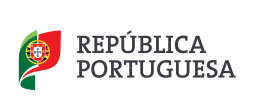The meeting of Working Group 5 (TRACTS WG5), dissemination and science communication, is organized by CITAR researcher Luís Teixeira, and it will take place on July 17th, in School of Arts, Porto.
TRACTS stands for 'Trace as a research agenda for climate change, technology studies, and social justice'. TRACTS is a COST Action (2021–2025) that brings together scholars from disciplines of the social sciences and humanities with artists, decolonial activists, memorialization experts and legal professionals to bridge current cultural, political and geographical gaps in research on traces.
In response to the recent waves of populism, actors as diverse as environmentalists, human rights activists, and curators have been confronting and creatively deploying the legacies of the 20th century. This shows no sign of abating in a Europe marked by rapid technological, environmental and socio-economic changes. As such, mapping the challenges in the realms of social justice, climate change, and technological impact on society requires reflecting on and producing new understandings regarding traces.
A trace, be it object, trail, ruin, archival record, or memory, is both a mark and a track of the past and the future, that can be found and followed in the present. Scientific research on traces and the use of tracing as a conceptual or analytical tool permeates many fields, including heritage and museum studies; analyses of landscape and environmental impact; investigations of colonial legacies in political institutions and Europe-wide remnants of mass violence; and studies of personal digital footprints, GPS tracking and technologies of surveillance. Surprisingly, however, the theoretical and methodological approaches to analysing traces have never been comprehensively coordinated across disciplines and research practices.
The TRACTS COST Action intends to bring together and learn from this wide-ranging and disjointed scholarship by fostering a pan-European network, which is bottom-up, innovative, critical, and inclusive. This network brings together academics from the humanities (philology, art history, archaeology, history) and the social sciences (social anthropology, ethnology, law, sociology) with visual and sound artists, museum and independent curators, environmentalists, human rights activists, memorialization experts and policymakers to bridge current cultural, political, and geographical gaps in European research on traces.




